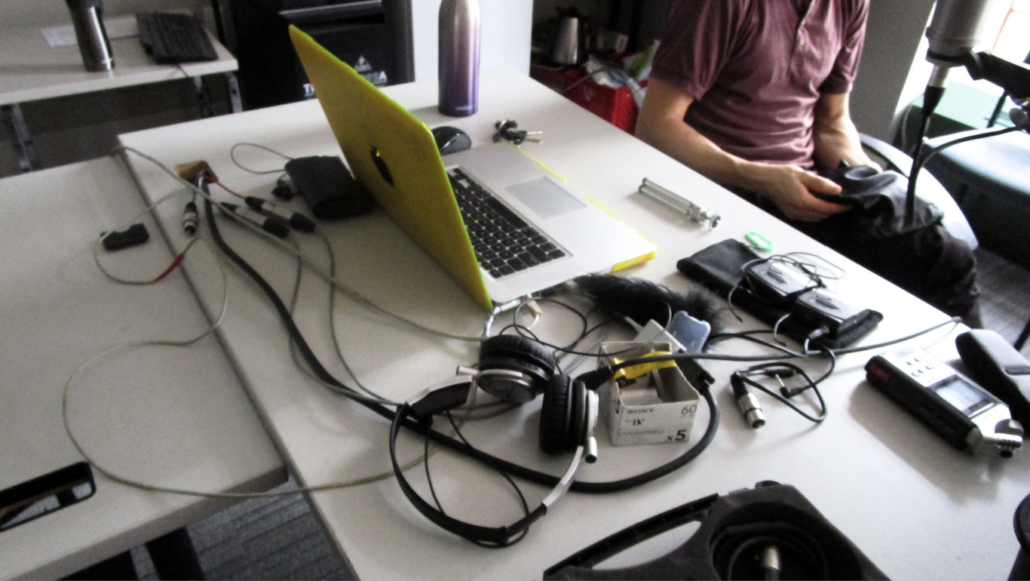Working with existing interviews also offers students a chance to reflect on the dynamics at play during an interview, and observe how and where things like emotion, silence, or tension may arise. There are plenty of archives that may be useful for you in learning more about a given topic via oral history or answering your very own research questions with existing interviews.
The topic of reusing oral history interviews, or making new engagements with interviews you have not conducted yourself, is still a developing research area. A number of historians have addressed the challenges of reusing interviews when so much contextual data is often missing. Data such as the specificities of consent forms, the interview dynamics, where the interview was conducted, when, tensions in the interview process, etc.
ARCHIVES
COHDS has a rich archive consisting of interviews with different themes such as migration, labour, identity, and mass violence. You can find a comprehensive list as well as details on how to access our collection by visiting our Archives page.
You can see a handful of archives by topic on our Other Resources page, ranging from de-industrialization to heritage and queer histories.
REUSE
While the ethics process of reuse is different from the ethics of developing a new interview project, it is no less important to consider how the data is being reinterpretted outside of its original context. Should reuse be of interest to you, there are many interviews available in the open access that require no formal ethics protocol.
No matter the context, reuse is a method that gives us the chance to listen to someone’s story and honour the voices of those who may no longer be here. While it may be different from conducting an interview, reuse is still a collaborative act, and entails just as much brainstorming, reflecting, and ethical considerations.
While mapping your reuse project, here are some questions to consider at each step of the way:
1. Plan
- What are the goals of your project?
- What are you planning to listen for? (Think here about how someone’s testimony may offer insight to your research questions)
- Is your interview open access? If not, what access restrictions are there?
- What information do you have about the organization housing the interview? Why were these interviews conducted?
- What information about the interview itself do you have available to you? Do you have information on who the interviewer and interviewee are? Their relationship? Where the interview took place? When?
- How would you like to share or develop your project once the interviews have been researched? If you are incorporating your own interviews, once your interviews have been conducted?
2. Interview
- How will you put “deep listening” into practice? (Here it may be helpful to take notes as you listen, or draw a timeline of events, or a sketch of some of the important place or memories mentioned)
3. Reflect
- How do you feel after the interview? What did you find most interesting, fascinating, or compelling? Did anything surprise you?
- How was authority shared during the interview? What did you notice about the interview style?
- What were some key moments of emotion in the interview, for both the interviewer and interviewee?
- How did the format of the interview affect how you watched/ listened?
- What kind of connections were you making with other narratives or facts as you listened?
- What additional information will you now seek out through secondary source material?
- How did the interview end? Did the interviewee end on their own terms? Is there anything you are left wondering?
4. Process
- While processing is a key step in conducting interviews given the need to save and transcribe different files, this is usually not the case in reuse. Should you have translated or transcribed parts of the interview you used, it is helpful to keep your files organized and also keep in mind what authority these actions may imbue over the voices you are working with.
5. Share/Create
- How are you planning on disseminating your findings?
- What form would you like them to take? Creative? Academic? Audio-visual art? Material art?
- How broad of an audience will you share your findings with? (This may be a complex question depending on the particularities of the ethics involved)
FURTHER READING
Below are some sources that may help with the interpretation of interviews that are being “reused”:
Bornat, Joanna. “A Second Take: Revisiting Interviews with a Different Purpose.” Oral History 31, no. 1 (2003): 47–53.
Gallwey, April. “The rewards of using archived oral histories in research: the case of the Millennium Memory Bank.” Oral History 41, no. 1 (2013): 37–50.
High, Steven. “Going Beyond the “Juicy Quotes Syndrome.” In Elizabeth Miller, Edward Little, and Steven High, Going Public: The Art of Participatory Practice. Vancouver: UBC Press (2017): 110-129.
Ménard, Mélissa-Anne. “Voices in the Field: A Critical Approach to Reusing Archived Oral History Interviews with the Forgotten Australians and Former Child Migrants Oral History Project,” (Masters thesis, Concordia University, 2023), https://spectrum.library.concordia.ca/id/eprint/992252/.
Moore, Niamh. “(Re)Using Qualitative Data?” Sociological Research Online 12, no 3 (2007): 1-13

